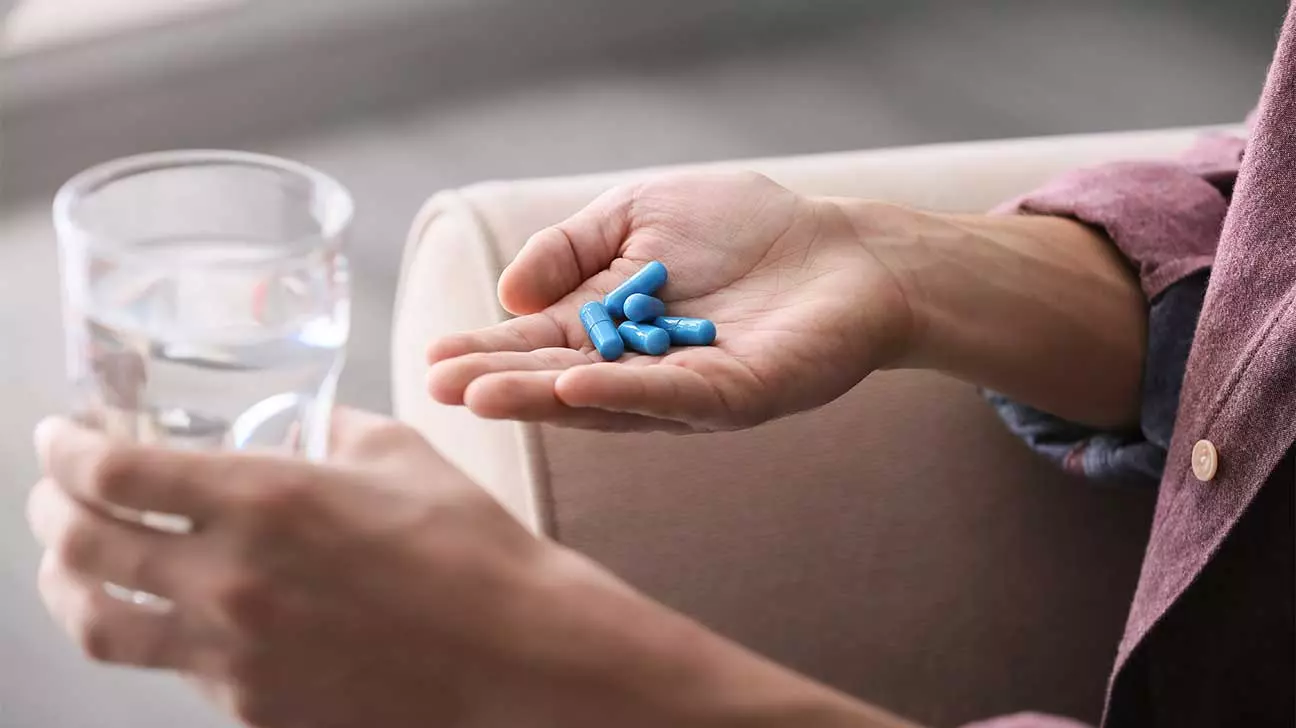
Anxiety disorders, such as social anxiety disorder and generalized anxiety disorder, are the most common mental illness in the U.S., affecting roughly 40 million adults each year.
Medical treatment for an anxiety disorder — such as with an anxiolytic (anti-anxiety) medication — is one of the most common treatments for anxiety, alongside mental health counseling.
Anxiety medications, like benzodiazepines, can be beneficial and effective when taken as prescribed for short-term use. But they can also become addictive, if repeatedly misused.
What Are Anxiolytics?
Anxiolytics are a class of drugs that can help to prevent or reduce anxiety due to their effects on the central nervous system (which includes the brain).
Common examples include:
- benzodiazepines
- barbiturates
- sleeping pills (i.e. sedative-hypnotics)
- beta-blockers
How Do Anxiolytics Work To Treat Anxiety?
Anxiolytics belong to a class of substances known as central nervous system depressants, or sedatives, that work by targeting certain brain chemicals.
Benzodiazepines, for instance, increase the levels of the neurotransmitter GABA, which can block other activity in the brain and reduce abnormal excitability.
After taking an anxiolytic, you may feel short-term side effects such as drowsiness, sleepiness, dizziness, reduced heart rate, and decreased blood pressure.
Which Anxiety Medications Are Addictive?
There are several different types of drugs prescribed for anxiety disorders, panic disorder, and post-traumatic stress disorder (PTSD) that can be habit-forming.
Benzodiazepines are the most common example. In the United States, there are millions of benzodiazepine prescriptions written each year.
The most common benzodiazepines include:
- alprazolam (Xanax)
- lorazepam (Ativan)
- clonazepam (Klonopin)
- diazepam (Valium)
- chlordiazepoxide (Librium)
- temazepam (Restoril)
Are Anxiety Medications Dangerous?
Anxiety medications like Xanax are not inherently dangerous. Still, any drug, including prescription medications, can carry certain risks with use, especially if they’re taken chronically.
Long-term use of benzodiazepines, for instance, can lead to drug tolerance, physical dependence, and have other long-term side effects, like difficulty sleeping and sexual problems.
Addiction, on the other hand, generally develops as a result of chronic substance abuse, which occurs when you take a drug in ways other than as prescribed or directed.
What Are The Signs Of Addiction To Anxiety Medications?
Benzodiazepine addiction can be identified by a doctor, a friend, or a loved one by a number of physical symptoms, mental health symptoms, and behavioral warning signs.
Signs and symptoms of benzodiazepine addiction can include:
- taking doses more frequently or in higher doses than prescribed
- crushing and snorting pills
- dissolving and injecting pills
- mixing benzos with other drugs (e.g. opioids, alcohol) for stronger effects
- high tolerance
- experiencing withdrawal symptoms with reduced or stopped use
- trying to hide the extent of one’s drug use
- overdosing on benzodiazepines
Is There A Non-Addictive Alternative To Anxiolytics?
Yes and no. That is, not all drugs that are prescribed by clinicians for anxiety or panic attacks have a high addiction potential.
Antidepressants like selective serotonin reuptake inhibitors (SSRIs) and selective norepinephrine reuptake inhibitors (SNRIs), for example, can also be prescribed as a treatment for anxiety.
Both have a much lower potential for abuse and addiction, compared to anxiolytics like benzodiazepines (“benzos”) and ‘z’ drugs like Ambien, the brand name for zolpidem.
However, because these drugs work differently in the brain, it’s possible one may be more helpful than another for treating or otherwise reducing a person’s anxiety.
Your treatment plan for an anxiety disorder, or related mental health condition, can be best discussed with a healthcare provider who has knowledge of your medical history.
What Is The Treatment For Anxiolytic (Anxiety Medication) Addiction?
An addiction to anxiety medications can best be treated through a dual diagnosis treatment program.
That’s a form of addiction treatment offered by some U.S. rehab centers for people with co-occurring mental health and substance use disorders.
A dual diagnosis treatment program may offer:
- medical detoxification (detox) for withdrawal
- individual and group counseling
- mental health counseling
- behavioral therapy
- medication management
- psychiatric services
- support groups
- relapse prevention planning
- aftercare support
Treatment for addiction to an anti-anxiety medication can be sought through a treatment center, or an individual treatment provider, such as a therapist.
Find Help For Anxiolytic Addiction Today
If you, a family member, or other loved one is battling an addiction to an anxiety medication, we can help you learn more about available treatment options.
Call our helpline today to learn more about anxiolytic addiction, addiction treatment options, or to find a rehab program for benzodiazepine addiction near you.
Addiction Resource aims to provide only the most current, accurate information in regards to addiction and addiction treatment, which means we only reference the most credible sources available.
These include peer-reviewed journals, government entities and academic institutions, and leaders in addiction healthcare and advocacy. Learn more about how we safeguard our content by viewing our editorial policy.
- Anxiety and Depression Association of America — Facts & Statistics
https://adaa.org/understanding-anxiety/facts-statistics - U.S. National Institute on Drug Abuse (NIDA) — Summary of Misuse of Prescription Drugs
https://nida.nih.gov/publications/research-reports/misuse-prescription-drugs/overview - U.S. National Library of Medicine: MedlinePlus — Alprazolam
https://medlineplus.gov/druginfo/meds/a684001.html

